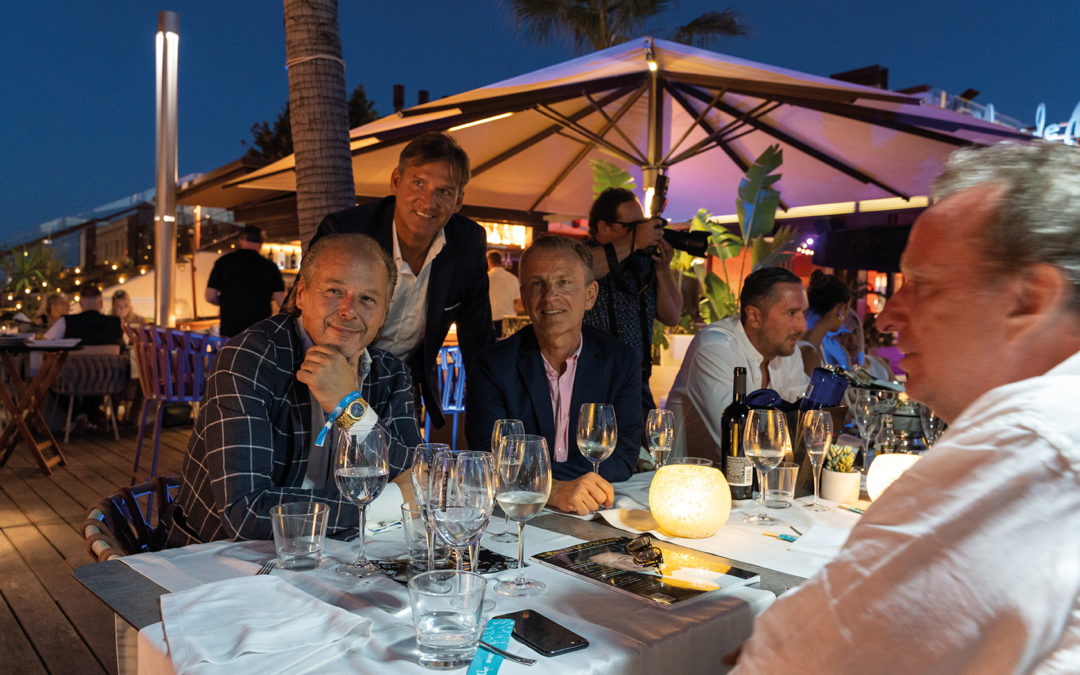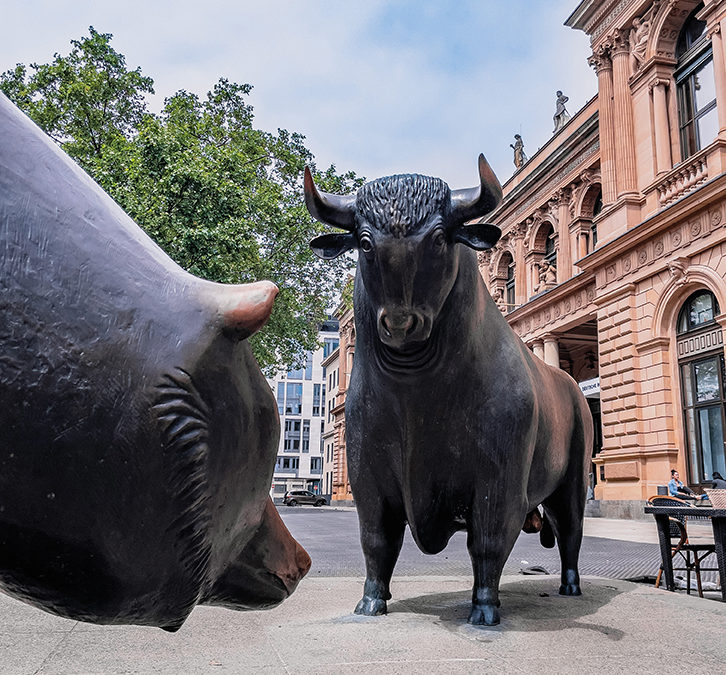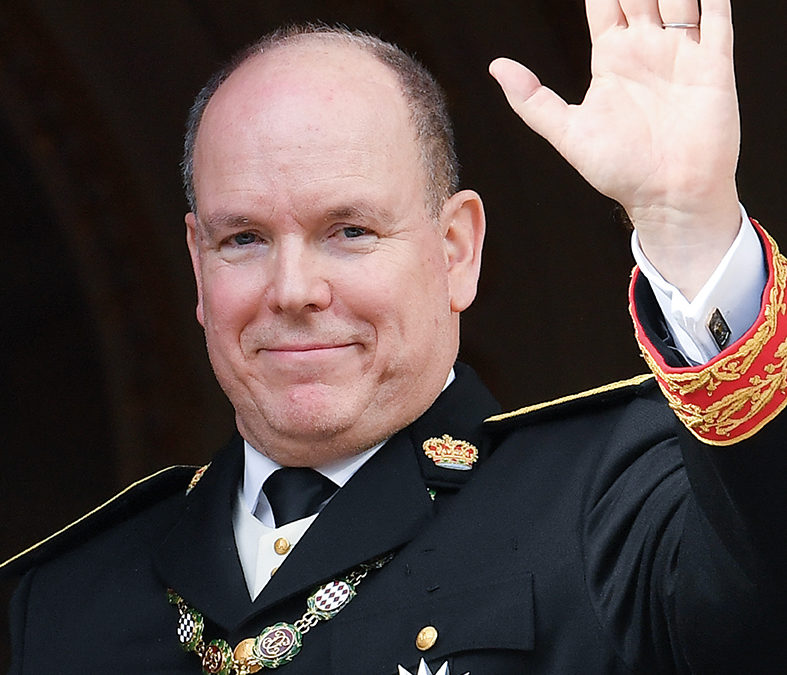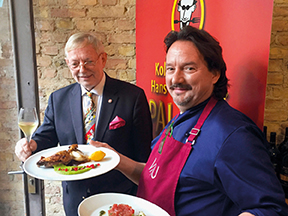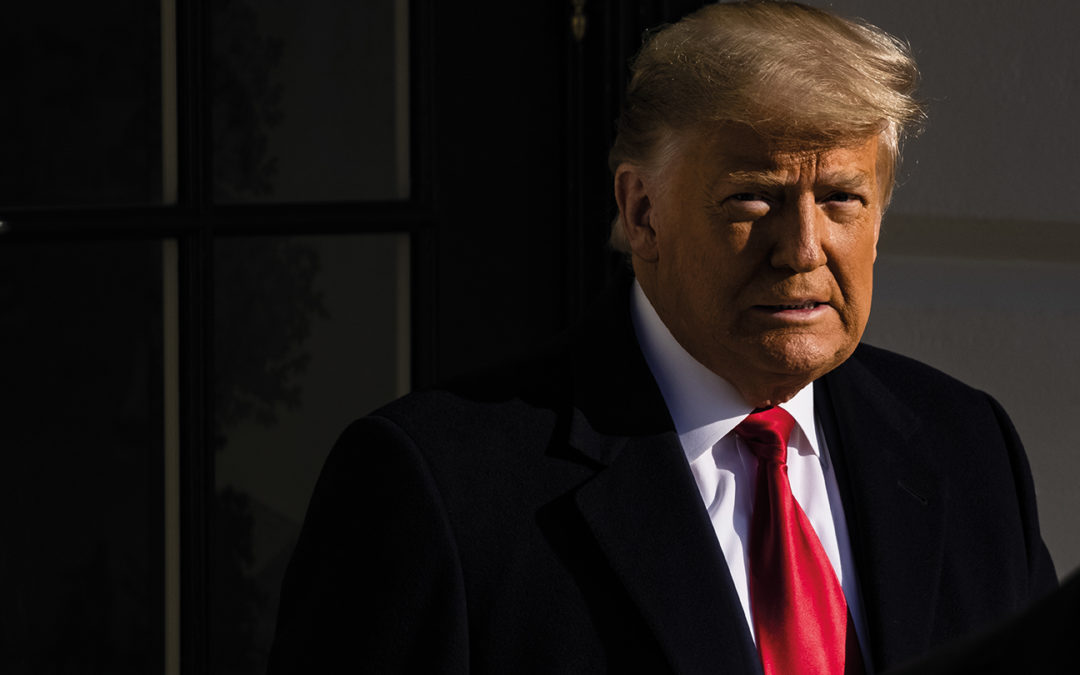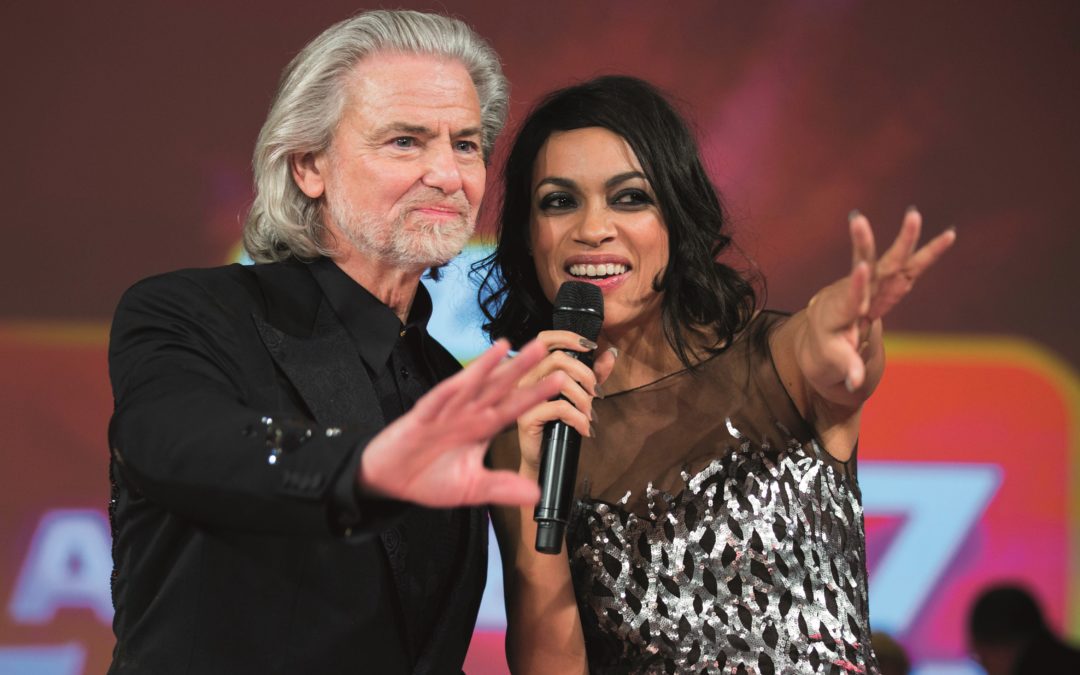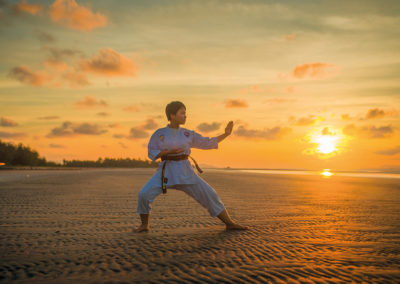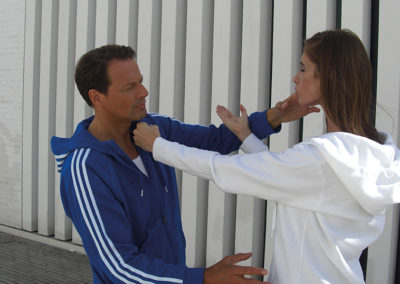Martin Ramm:
Many entrepreneurs and managers keep fit with martial arts, e.g. boxing, kick boxing and co. You teach the martial arts. What is the difference between the art and the sporting aspect of fighting and to what extent does martial arts lead to business success?
Attilio Reale:
First of all, it is very good that business people do not stay at their desks or in their minds, but also engage with their physicality. We all know that thoughts and concepts have to be embodied if we want to create and successfully market products and services. Conceptual design, future plans and retrospectives are proven management techniques, but without implementation they will not lead to the goal. Successful implementation requires the ability to act. The difference to martial arts lies especially in the steps to mastery. The first step is self-defence against physically superior opponents without the security of rules. Fighting situations are real and take place immediately. It is about intuitively doing the right thing. The mastery of martial arts is not having to fight, in other words when challenges can be solved with ease.
Martin Ramm:
You speak of disputes without rules. Aren‘t there internationally valid agreements, laws and norms that guide economic activity?
Attilio Reale:
In the business world, too, there are at least no universally valid agreements on flawless fairness. When you enter a new lucrative business field, it goes very quickly until you resonate with competitors who are at least in your league. Your ideas are copied, perhaps even further developed and improved, your best employees, suppliers and distribution channels are highly courted. You don‘t know when and how this happens, it‘s a battle without rules and without a script.
Martin Ramm:
From the perspective of martial arts, are the conflicts of collective bargaining parties a counter-example to a „mastery in the business world“? Every year we can see how a high-stakes battle leads to large-scale economic damage, e.g. a collective bargaining dispute at Deutsche Bahn, which damages rail customers, the company and our national economy as a whole.
Attilio Reale:
You can look at it that way. This sounds less like mastery and more like simultaneous knockouts on all sides! There is no such thing in martial arts. Winning is not about doing „damage“ but about appropriate self-assertion. We all bear personal responsibility for our thoughts and actions. We want to resolve the situation respectfully and for the benefit of all – ideally by agreement and without fighting, i.e. with „fair play“. Lasting peace never comes about when one party is sustainably harmed. Maintaining peace and harmony would also lead to more success in business life.
Martin Ramm:
I am particularly interested in mastery. What are the steps that lead to mastery and in which concrete situations in business life can I apply these steps?
Attilio Reale:
Mastering martial arts to perfection off the cuff does not work. One reason for this is that in situations perceived as threatening, we automatically activate physically and mentally „programmed“ reaction patterns that impair our ability to act. We know about the accumulating effects of stress. High levels of tension reduce our ability to act prudently and wisely, which in turn creates further feelings of stress. We then call this „burn out“.
Our self-control is the key here. Physically and mentally. Can I remain calm and level-headed at all times? Do I feel threatened, or can I accept the situation as an exciting challenge? The ability to act and lead is based on the ability not to get stressed, to remain emotionally neutral and to re-find your own centre.
Be your own observer. Feel how your body reacts, what thoughts and feelings arise in you. Practise calming yourself in tense moments, breathe into your heart and use the power of positive affirmations.
Master your thoughts. Each of us knows examples where our thoughts have made a difference to others. Why is that? Thoughts are also ideas of what could happen. Through my power of thought, I actively shape what will happen tomorrow. Therefore, ignore the negative and reinforce the positive. One principle of martial arts is the combination of mobility, flexibility and inner strength. In martial arts we speak of a good stand. Only when we are flexible and yet can „stand firm“ do we have a foundation for effective action. In negotiations, if you can stand your ground from inner conviction and at the same time integrate convincing counter-positions ad hoc into your stand, you will have great success.
Martin Ramm:
Mr Reale, thank you very much for this exchange.
